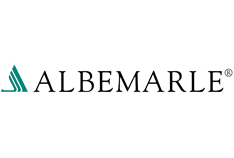The best thing about the stock market is that you can make money in either direction. Historically, stock indexes have tended to trend up over the long term. But when you look at individual stocks, you’ll find plenty that lose money over the long haul. According to hedge fund institution Blackstar Funds, even with dividends included, between 1983 and 2006, 64% of stocks underperformed the Russell 3000, a broad-scope market index.
A large influx of short-sellers shouldn’t be a condemning factor to any company, but it could be a red flag from traders that something may not be as cut-and-dried as it appears. Let’s look at three companies that have seen a rapid increase in the number of shares sold short and see whether traders are blowing smoke or if their worry has some merit.
| Company | Short Increase April 30 to May 15 | Short Shares as a % of Float |
|---|---|---|
| Albemarle (NYSE:ALB) | 330.4% | 8.4% |
| Newcastle Investment (NYSE:NCT) | 106.9% | 1.8% |
| AT&T (NYSE:T) | 13.7% | 1.5% |
Source: The Wall Street Journal.
An explosive reaction

The maker of specialty polymers and catalysts used by the electronics, automotive, and refining industries reported first-quarter results in late April that fell well short of Wall Street’s estimates. Net income for the quarter fell by 26% as sales declined 10%, with management pointing to continued weakness in the coming quarters because of weak electronics sales domestically and sluggish auto sales in Europe.
Despite these poor results, Albemarle Corporation (NYSE:ALB)’s share price has been on fire, presumably under the suspicion that domestic economic data is improving and that, at 11 times forward earnings, Albemarle Corporation (NYSE:ALB) could still be an intriguing value. As for me, I’m putting my trust in short-sellers — at least in the short-term.
That earnings report was ghastly! The company’s catalyst segment — its largest — saw sales plummet by 20% while its polymer segment managed higher-volume sales but saw prices slump badly. This is not a recipe for success. The company did boost its dividend by 20% and initiated a massive share repurchase program that’ll buy back 10% of all outstanding shares by year’s end in an effort to support shareholders; however, it did nothing to address how to grow the business. Until we see prices improve and Europe’s economy stabilizes, this is a company I’d suggest avoiding altogether.
Steady as she goes
Despite a steady return to profitability, the distrust of residential mortgage-backed security and commercial real estate debt holder Newcastle remains evident.
Newcastle recently declared a quarterly payout of $0.17 per share, which, while down from the $0.22 paid out in the previous quarter, would still equate to an annualized yield of 12%. Furthermore, the company completed its spinoff of former subsidiary New Residential Investment in early May. This new company does own nearly half of Newcastle’s asset portfolio and should make it easier for investors to understand how Newcastle makes its money, and could help unlock value in Newcastle’s share price, which is notably below book value.
However, I’d be quick to point out that while the underlying financials are improving dramatically, there’s still a major risk that could cripple Newcastle. Newcastle relies on a stable economy in order to pay out huge dividends and remain healthfully profitable. Quite a bit of its portfolio is devoted to below-investment-grade mortgage securities and debt, which puts it at a significant disadvantage if the economy turns south. Unlike agency REITs, which can lever up with the understanding that their loans are backed by the U.S. government, part of Newcastle’s asset portfolio has no fail-safe, meaning it takes MBS defaults on the chin. This means that if the Federal Reserve begins paring back its bond-buying program, Newcastle investors should be on high guard in case housing growth slows to a crawl or even retreats.




